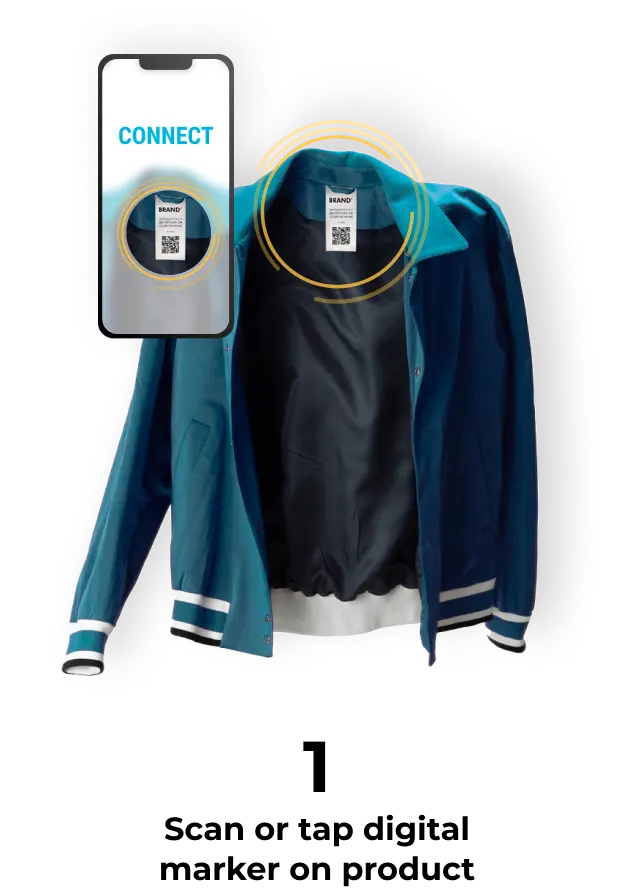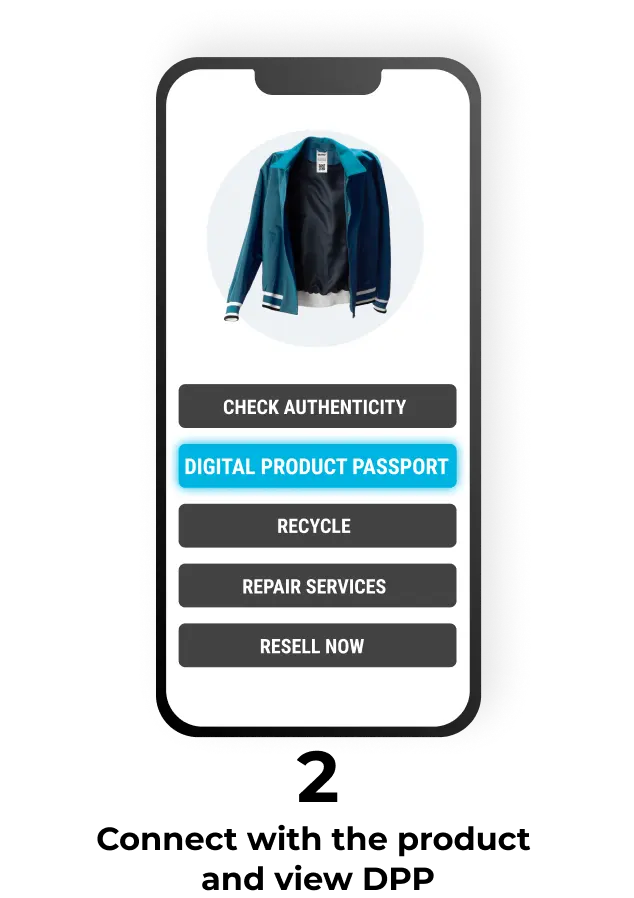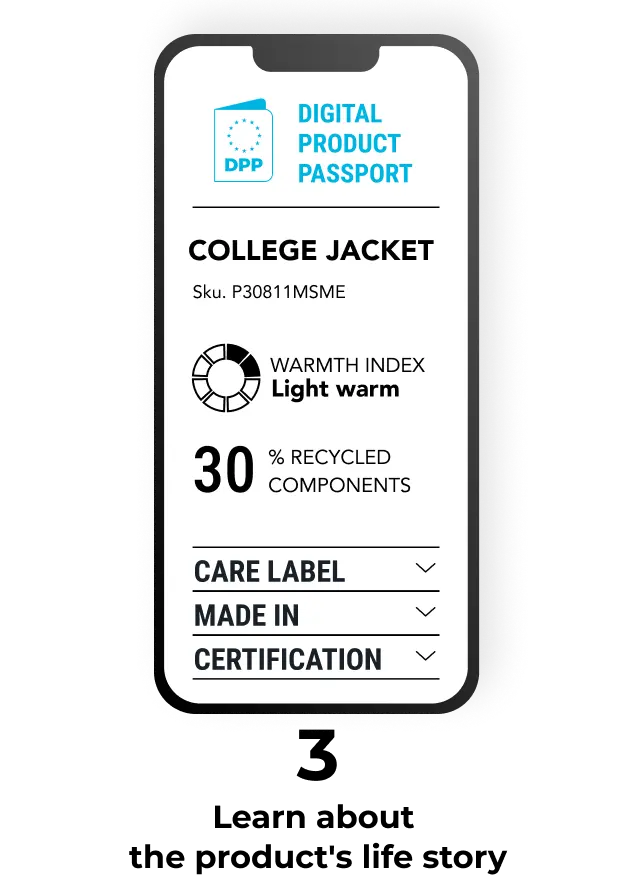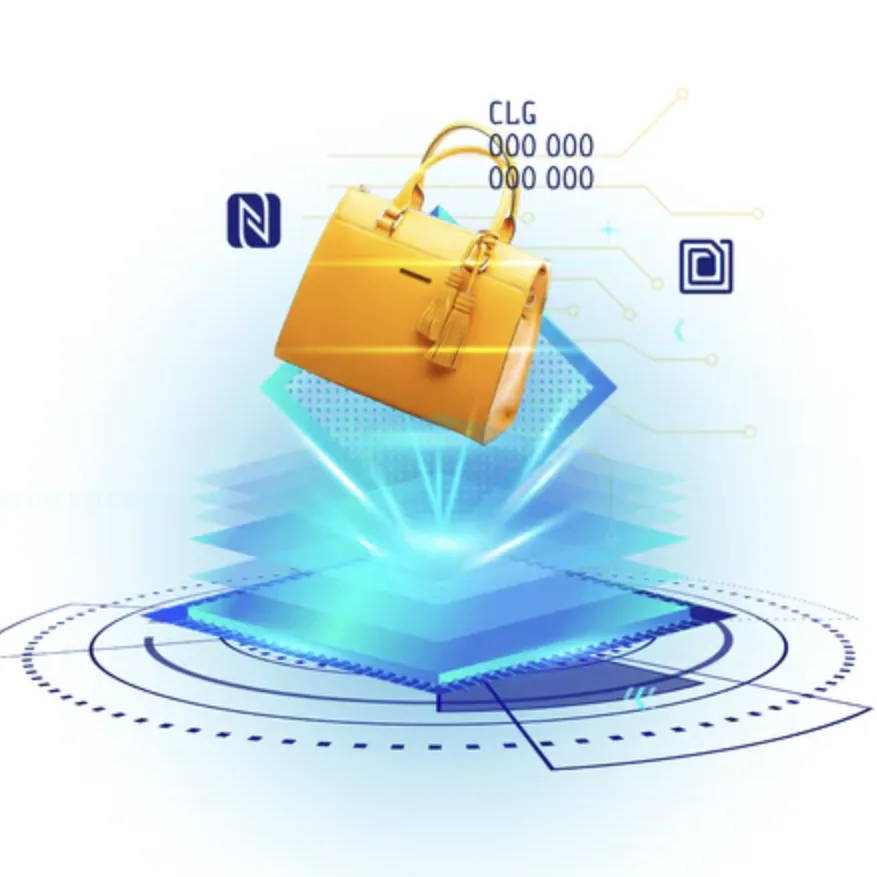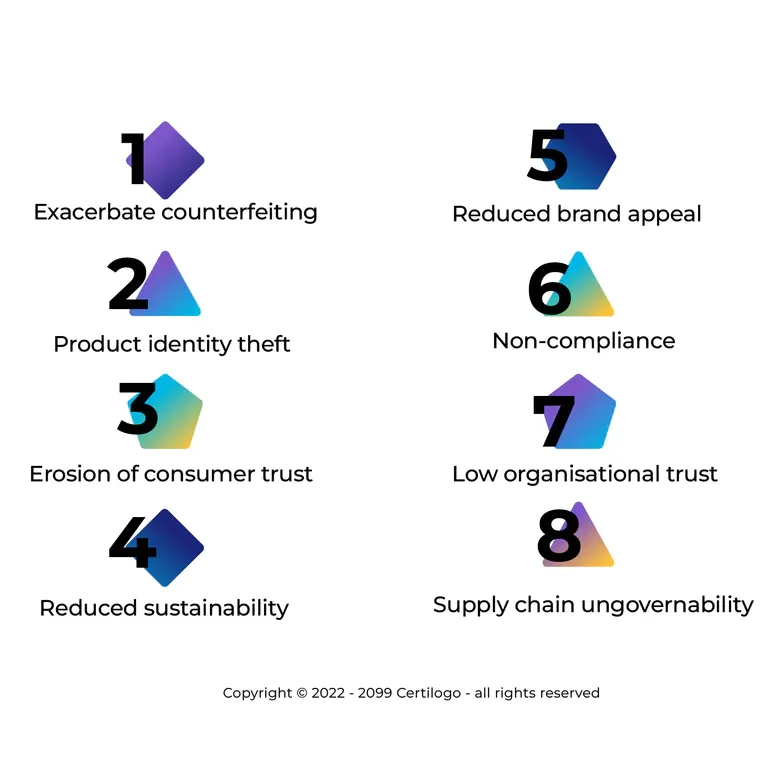What is a Digital Product Passport
A Digital Product Passport (DPP) is a comprehensive digital record that accompanies a product throughout its entire lifecycle.
This digital record is expected to include information such as:
- Manufacturing and supply chain information
- Materials used and product composition
- Sustainability certifications and compliance
- Repair, recycling and circularity services
- Environmental Impact

Experience a live demo

Experience a live demo

How does a DPP work?
Consumers can access an individual product’s digital product passport by scanning the digital marker physically attached to the product in question. Examples of these digital markers can include QR codes, NFC tagging and barcodes.
According to the EU DPP legislation, each product sold on the EU market must be provided with its own unique digital identifier, which enables the product to be recognised, tracked and documented throughout its lifecycle.

The future proof Digital Product Passport
Historical champion of ethical fashion, Save The Duck a certified B-Corp, recently integrated a Digital Product Passport solution with the help of Certilogo
Learn about the integration process and how their DPP’s are poised to generate value for their brand and their customers.
EU DPP Legislation
The concept of a DPP was first introduced in March 2022, when the EU called for the implementation of the Digital Product Passport for all textile products sold in the EU by 2030.
Compliance
The new EU DPP Legislation will require brands to examine their current supply chain, manufacturing processes, work practices, and more to ensure that they are compliant with the legal requirements.
- Current production process and environmental impact
- Impact of supply chain, materials used and working conditions
- Data collection process for all DPP information
- Sustainable materials in the manufacturing processes
- Guidelines for product repairability and circularity
- Ethical and compliant working conditions
- Track entire life cycle of each product and impact
- Monitor Environmental footprint of their production process
- Integrate and maintain evolving compliance measures.
Security and Counterfeit Risks
Security is crucial factor when implementing Digital Product Passports as it ensures brands are able to combat the damaging impacts of counterfeiting.
A Secure by Design™ DPP

- Proactively intercept, recognise and manage cloned and fake product IDs on counterfeit and illicit products.
- Ensure your products maintain their value throughout their entire lifecycle with secure authentication.
- Natively empower circular services and protect your brand’s circular ecosystem with internal security processes.
- Provide certificates of authenticity and resale services that align with a brand’s circularity goals.
- Align your compliance data with legislative requirements and protect your brand’s reputation
- Integrate customized and scalable solutions that evolve with your business needs

DPP and Connected Products
While connected products inherently integrate the digital product passport, the two have separate, but complementary functions. A DPP is used to provide specific product details in line with legislative requirements to consumers.
Connected products allow brands to engage in a relationship with consumers by providing added value long after the initial purchase. Certilogo provides the most secure DPPs and connected product solutions that are engineered to connect people and brands.
We make it easy for brands of any size to build the most valuable, long-lasting, and trusted relationships with their consumers worldwide.

Enable your Connected Product Ecosystem

Circularity
Circularity services are not only a requirement under EU DPP, but a significant opportunity for brands to generate value and access new customers.
The Certilogo system is interoperable and offers a secure connection between consumers, brands and additional services activated through connected products.
What do Circularity services entail?
- Recycling services to prevent unnecessary waste
- Resale services to facilitate product reuse and resale
Over 80+ brands have trusted Certilogo to help them build customizable services for connected products.
Featured Insights
- Choosing a selection results in a full page refresh.



